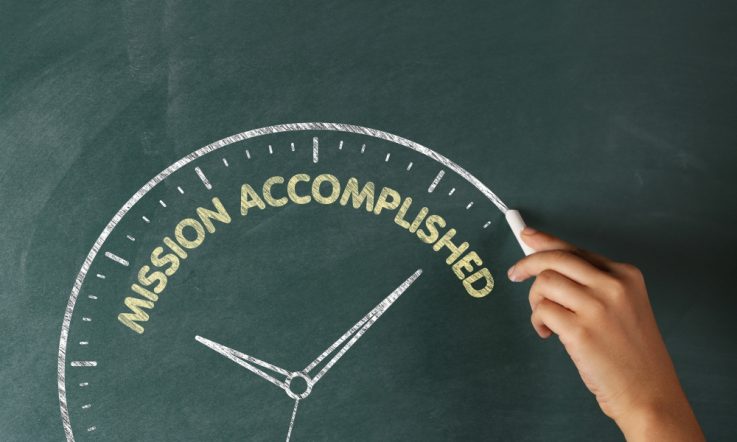New South Wales educator Anne Gripton recently shared how she undertook the journey to become a Highly Accomplished teacher. In today's Q&A we speak to Laura Wetherspoon, an early career teacher from Casuarina Street Primary School (CSPS) in the Northern Territory, about her experiences in working towards full registration (also known as Proficient Certification). We also hear from her principal John Cleary about his mentoring tips.
Take us through the process, from your perspective, of preparing to achieve full registration.
Laura Wetherspoon: I began preparing for full registration in Term 4, 2017 – my second year of teaching. Preparation involved meeting with my principal to share my intention to begin the process and then choosing a mentor to guide me through the process. In preparation I created a folder for each teaching standard and began organising and collating my evidence. Through target setting meetings with my principal we identified areas of strength and linked these to the standards. We also identified areas for development and set clear goals, which are being worked on through micro teaching sessions.
John Cleary: We work to make the standards a part of day-to-day life at the school. Professional development agendas and timelines are linked directly to the standards and feedback on program development and outcomes of data conversations are also linked to the standards met. Where we can, we feel it is important that teachers see from the beginning that this should not be an additional thing, but rather the affirmation of your progression and a natural outcome for the hard work undertaken in commencing your teaching career. Having a mentor early is important and ensuring that this person is clear on how and what effective mentoring looks like, sounds like and feels like for mentees is so important.
How long does the process take? Did you enlist the support of any other staff?
LW: I am still currently undertaking the process, however I endeavour to meet with the assessment panel Term 2, 2018. In total it will have taken me two school terms to complete.
I have enlisted the support of multiple staff members in the school; I feel I've probably asked almost everyone a question in relation to my full registration at some stage. When identifying my areas for development, my principal directed me towards teaching staff that for them those areas were strengths. I had the opportunity to observe their practice and began trialling different strategies in my own classroom. There are also organised opportunities at our school [for example] ‘walk throughs' that enable us to walk through all the different teaching spaces, [which is] another opportunity I take to look for unfamiliar routines and strategies.
JC: In some cases it can be around 12-18 months, sometimes a little longer … as well as teachers working with an identified mentor, each teaching team at the school has an Impact Coach which works alongside them and this is where the ongoing support for the development of practice is very targeted. Each year I work with all teachers to establish professional development targets for the year and these come directly from the standards, but also from whole school priorities and then individual areas of focus.
As a school leadership team, we share the standards being focused on across all members of staff to look at trends and common areas of needs and then design our professional development cycles and timelines to ensure we have provided support for this need in a targeted way. It needs to be everybody's business and so we share the consistent areas of focus across the school so people know why and how we are addressing this in the weeks and months ahead. This often leads to people sharing the things that they consider to be ordinary, but others consider extraordinary as part of learning walks and opportunities to get people in to learning environments other than own, as often as possible.
What are the challenges of this process?
LW: The process itself is pretty straight forward. I found the Northern Territory TRB website really helpful with the steps for registration clearly numbered one to 13. At this stage my biggest challenge is time management in the finding and organising of my evidence. If I could do my time as a beginning teacher again I would have made a folder for each teaching standard straight away and began organising my evidence as it became applicable.
JC: Building a culture where the standards sit within our work, not separate to it. Six years into this work, it is interesting to see the way in which new members of the CSPS team respond to this work when it has often not been a language that has been spoken in their previous school. Supporting people to understand what evidence looks like and to build habits in collecting and organising this evidence is a challenge as we move people's ideas away from portfolios or submissions which once signed off can be put away and forgotten about, to an idea of a continual and evidenced progression in your own learning and development which is always nearby.
What are the most rewarding aspects?
JC: As part of our surveys and reviews at CSPS, [one of the] questions led us to celebrate. Over 92 per cent of the team identified that they ‘strongly value' teachers who are ‘expert at their craft'.
This has built a culture where expertise is not tied to the position you hold or the numbers of years you have been part of our school community, but rather the standards and specific demonstrations of what ‘Highly Accomplished' and ‘Lead' practice means, have given us a common language to not only value expertise, but to be able to collectively recognise it.
Since undertaking this process, what differences have you noticed in your approach to teaching and professional development?
LW: Too many to mention! The last two years have been huge in the developing of my teaching approach. I feel I am establishing my own style that's being touched by many walks of life, little people and big! The biggest difference I would note would be the confidence I now have in myself whilst teaching. I always hoped I was on the right track, but actually knowing you are is such a great feeling.
What benefits does a culture focused on professional development have on the CSPS school community?
JC: In 2015 we discontinued traditional leadership positions at the school which had been historically won and owned, and were named ‘Senior Teachers'. After a number of years, these positions had become heavily focused on administration and accountability, and less and less about improving practice. We used the HALT process to identify members of our team who we felt should be recognised, both within our school but also nationally for their talent. We supported them to become accredited and following this also provided them with the time and professional development to undertake the role of ‘Impact Coaches' across the school.
Since 2014, CSPS has welcomed three Highly Accomplished teachers and one Lead teacher into our leadership team with a further two members of the team close to completing this process in 2018. We are very proud to have established a culture which can see a direct line from registration, to career checkpoints and probation within our system to national HALT certification in the future. Our school retention rate for teaching staff has increased from 68 per cent in 2012 to 92.7 per cent in 2017. I feel this is reflection of a culture which demonstrated that it invests in the practice of all and expects that everybody in our school community be continually seeking improvements for themselves and their students.
Do you have any advice for other teachers preparing to begin the process of achieving full registration?
LW: Begin organising your evidence as soon as you begin collecting it! Select a mentor who works closely with you but also don't be afraid to seek advice or assistance of other members of staff in your school. Everyone was a first year at some stage!
I've noticed on this journey that teachers don't always broadcast their strengths, in fact we're quite a humble bunch. Go digging and leave no stone unturned, professional development doesn't always need to be delivered by a lady in a suit – sometimes the answer is in the classroom just next door.
As an early career teacher, are you confident to ask your colleagues for help when required? How often do you call on them for assistance? In what ways does this improve your professional practice but also strengthen your professional relationships?
As a school leader, how do you create a culture of continuous learning amongst staff? In what ways do you encourage staff to constantly be looking for ways to improve their practice to benefit students?



